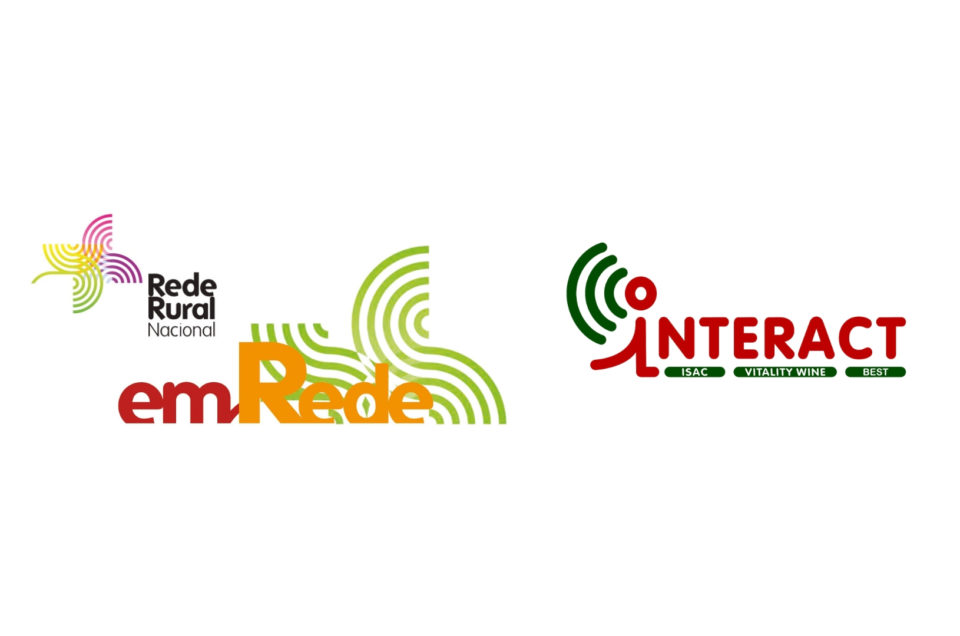INTERACT featured in national magazine

The INTERACT project (“Integrative Research in Environment, Agro-Chains and Technology”) was featured in the latest edition of the magazine “Em Rede”, edited by the National Rural Network (“Rede Rural Nacional”) of the General Office of Agriculture and Rural Development.
The scientific project was promoted through three articles by Professors Fernando Pacheco, Henrique Trindade and José Moutinho Pereira, responsible for the research lines BEST, ISAC and VITALITY WINE, respectively.
Articles cover results of three research lines
The three articles are part of the theme of issue no. 8 of the magazine which had as its theme “Responses to Climate Change – agriculture, forestry and rural territories”.
Fernando Pacheco is the author of the text Gestão Sustentada de Ecossistemas Produtivos num Clima em Mudança (“Sustainable Management of Productive Ecosystems in a Changing Climate”). In the article, the researcher and teacher at the University of Trás-os-Montes e Alto Douro (UTAD) tries to make a summary of the main conclusions of the four tasks that integrate the BEST research line. “The sustainable management of natural resources, combined with the optimization of production processes, valorization of by-products, climate adaptation and social involvement constitute paths for the achievement of environmental and economic goals in aquatic and terrestrial geospheres, as well as for the improvement, maintenance or recovery of ecosystem services”, the researcher said, reinforcing that the tasks cover “various areas of environmental analysis focused on environmental protection and environmental sustainability of agroindustrial, forestry and agro-food production processes”.
Inovação para Cadeias Agroalimentares Sustentáveis (“Innovation for Sustainable Agrifood Chains”) is the subject of Henrique Trindade’s article. The responsible for the ISAC Line demonstrates the objectives of the five tasks that make up this research line, in addition to the global challenges and results. “The research and experimentation efforts of public and private institutions in the last decades have been fundamental for the technological valorization of the region, fundamentally through the development and dissemination of innovation and knowledge”, the professor of UTAD said, pointing out that “the improvement of the competitiveness of the region requires a continuous effort to develop new methods, technologies and production processes more efficient and environmentally friendly”.
José Moutinho Pereira, on the other hand, chose to leave a Contributo para Promover a Sustentabilidade da Vitivinicultura do Douro Vinhateiro: Esforços Multidisciplinares desde a Vinha ao Vinho (“Contribution to Promote the Sustainability of Viniculture in the Douro Valley: Multidisciplinary Efforts from Vine to Wine”). The responsible for the VITALITY WINE Line briefly presents all the tasks. “In general, through a multidisciplinary approach (…), the main objective was to contribute to overcome some of the vulnerabilities of the Douro Valley, associated with climate change”, the professor of UTAD said, which include the promotion of “various measures, from the increase of the functional biodiversity of the viticultural ecosystem, to the development of strategies that promote a better balance between the vines and the biotic and abiotic environment, to the valorisation of the viticultural by-products, which are generated every year and are sources of environmental degradation”.
The access to the three articles, as well as to all editions of the magazine, can be made through the National Rural Network website at https://atalhos.eu/23.

























